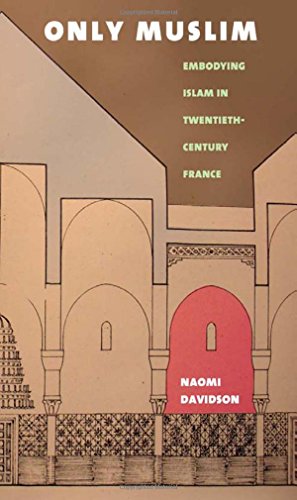

Most ebook files are in PDF format, so you can easily read them using various software such as Foxit Reader or directly on the Google Chrome browser.
Some ebook files are released by publishers in other formats such as .awz, .mobi, .epub, .fb2, etc. You may need to install specific software to read these formats on mobile/PC, such as Calibre.
Please read the tutorial at this link. https://ebooknice.com/page/post?id=faq
We offer FREE conversion to the popular formats you request; however, this may take some time. Therefore, right after payment, please email us, and we will try to provide the service as quickly as possible.
For some exceptional file formats or broken links (if any), please refrain from opening any disputes. Instead, email us first, and we will try to assist within a maximum of 6 hours.
EbookNice Team

Status:
Available4.7
27 reviewsThe French state has long had a troubled relationship with its diverse Muslim populations. In Only Muslim, Naomi Davidson traces this turbulence to the 1920s and 1930s, when North Africans first immigrated to French cities in significant numbers. Drawing on police reports, architectural blueprints, posters, propaganda films, and documentation from metropolitan and colonial officials as well as anticolonial nationalists, she reveals the ways in which French politicians and social scientists created a distinctly French vision of Islam that would inform public policy and political attitudes toward Muslims for the rest of the century―Islam français. French Muslims were cast into a permanent "otherness" that functioned in the same way as racial difference. This notion that one was only and forever Muslim was attributed to all immigrants from North Africa, though in time "Muslim" came to function as a synonym for Algerian, despite the diversity of the North and West African population.
Davidson grounds her narrative in the history of the Mosquée de Paris, which was inaugurated in 1926 and epitomized the concept of Islam français. Built in official gratitude to the tens of thousands of Muslim subjects of France who fought and were killed in World War I, the site also provided the state with a means to regulate Muslim life throughout the metropole beginning during the interwar period. Later chapters turn to the consequences of the state's essentialized view of Muslims in the Vichy years and during the Algerian War. Davidson concludes with current debates over plans to build a Muslim cultural institute in the middle of a Parisian immigrant neighborhood, showing how Islam remains today a marker of an unassimilable difference.